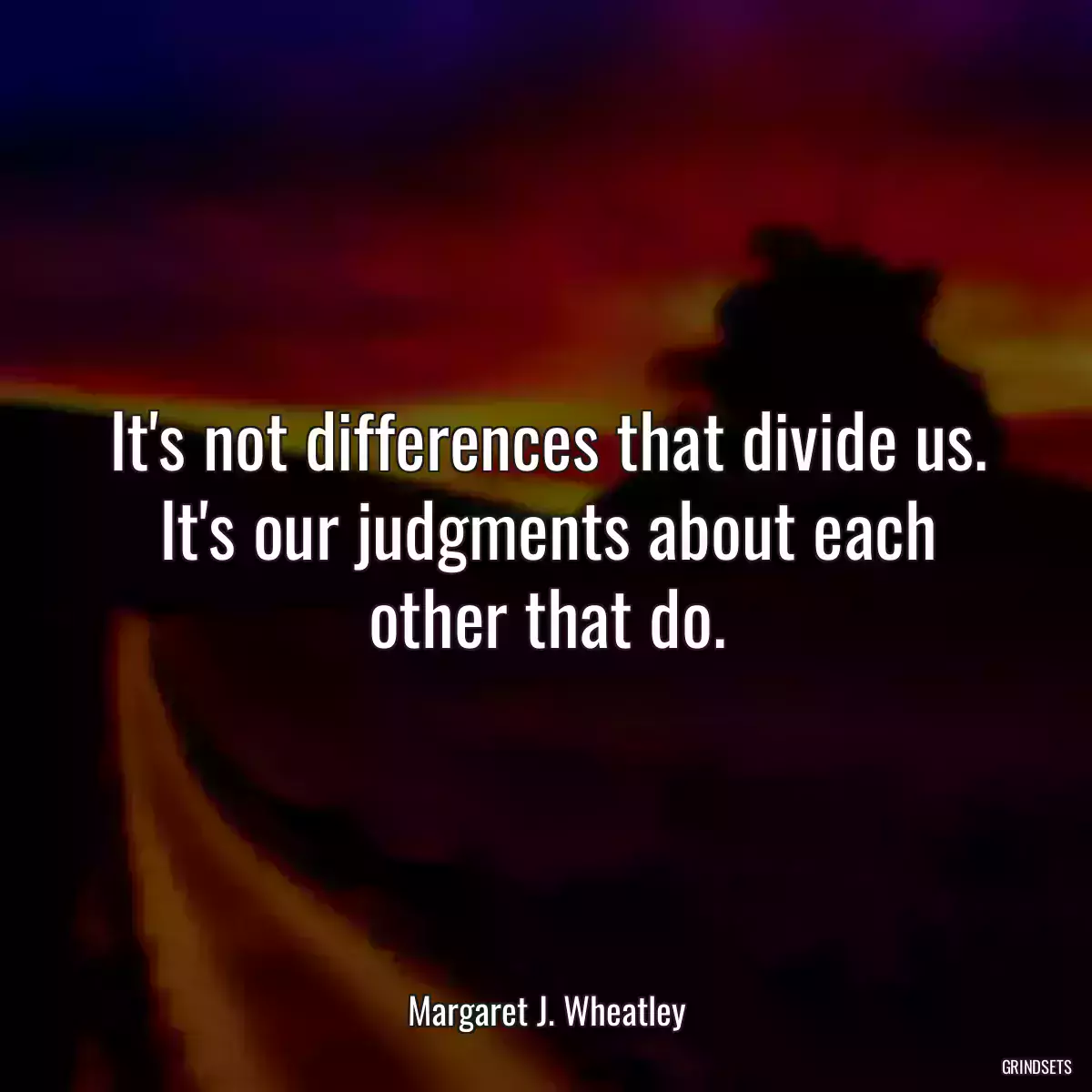
It's not differences that ...

More phrases
Effort only fully releases its reward after a person refuses to quit.
Never complain and never explain.
A good plan violently executed now is better than a perfect plan executed next week.
George S. Patton
Problems are not stop signs, they are guidelines.
Robert Schuller
Never give up, for that is just the place and time that the tide will turn.
Harriet Beecher Stowe
Quotes from the same author
I'm sad to report that in the past few years, ever since uncertainty became our insistent 21st century companion, leadership has taken a great leap backwards to the familiar territory of command and control.
Margaret J. Wheatley
Life now insists that we encounter groundlessness. Systems and ideas that seemed reliable and solid dissolve at an increasing rate. People who asked for our trust betray or abandon us. Strategies that worked suddenly don't. Groundlessness is a frightening place, at least at first, but as the old culture turns to mush, we would feel stronger if we stopped searching for ground, if we sought only to locate ourselves in the present and do our work from here.
Margaret J. Wheatley
Our growing addiction to the Internet is impairing precious human capacities such as memory, concentration, pattern recognition, meaning-making, and intimacy. We are becoming more restless, more impatient, more demanding, and more insatiable, even as we become more connected and creative. We are rapidly losing the ability to think long about any- thing, even those issues we care about. We flit, moving restlessly from one link to another.
Margaret J. Wheatley
Even though worker capacity and motivation are destroyed when leaders choose power over productivity, it appears that bosses would rather be in control than have the organization work well.
Margaret J. Wheatley
In organizations, real power and energy is generated through relationships. The patterns of relationships and the capacities to form them are more important than tasks, functions, roles, and positions.
Margaret J. Wheatley